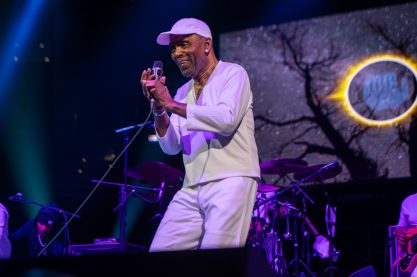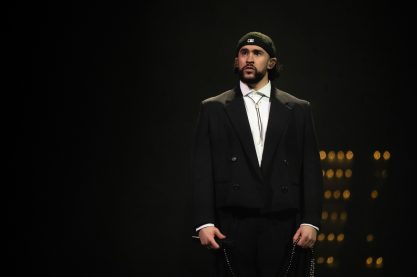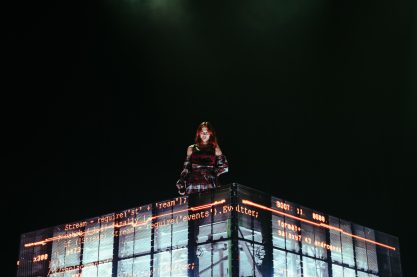Featured
MUSIC: Authenticity and Us
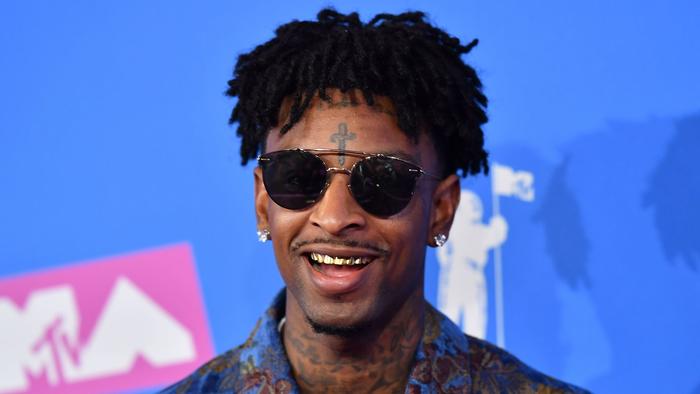
[caption id="attachment_95006" align="alignnone" width="700"]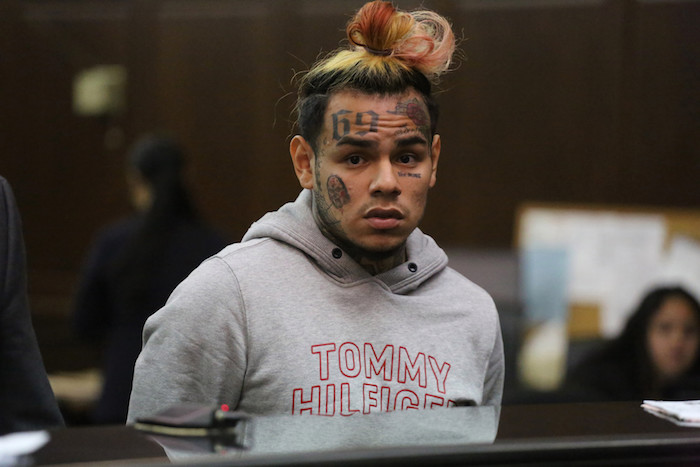 Daniel Hernandez, aka, Tekashi 69, aka 6ix9ine, appears at his arraignment in Manhattan Criminal Court on Wednesday, July 11, 2018. He was arrested earlier Wednesday on an assault warrant from Texas. (Photo by Jefferson Siegel/NY Daily News via Getty Images)[/caption]
Daniel Hernandez, aka, Tekashi 69, aka 6ix9ine, appears at his arraignment in Manhattan Criminal Court on Wednesday, July 11, 2018. He was arrested earlier Wednesday on an assault warrant from Texas. (Photo by Jefferson Siegel/NY Daily News via Getty Images)[/caption]
(NY Daily News via Getty Images)
Daniel Hernandez also known as Tekashi 6ix9ine pled guilty to nine federal crime charges on January 23rd. Facing a possible sentence of 47 years this has effectively ended the career of the up and coming rapper. Tekashi came up during the exploding popularity of soundcloud rap; a low-fi subgenre of hip-hop that focuses on minimalism in beat and lyrica but maximalism in volume. Tekashi separated himself from his peers buy willing to push his persona in more antagonizing ways that others; provoking other rap musicians, intentional “I don’t give a fuck” press interviews , and a general enthusiasm to making sure in any situation he was the bad guy. His controversies were at least as popular as his songs.
https://www.youtube.com/watch?v=nQONtlxtHYo
As a result these stunts brought him more fame but it also brought accusations of him being inauthentic and intentionally playing up the image. Pictures started circulating of a baby faced Tekashi "pre" face tattoo as a young teenager along with accusations of exaggerated gang membership (usually by actual gang affiliated rappers). The avalanche Tekashi related publicity online became so much that even if you believed his street tales it still felt otherworldly and cartoonish, a silly viral video of him running with an assault rifle summed up the whole thing pretty well.
Controversy sells; off the strength of earlier street hits like "Gummo" and a chart topping collaboration with Nikki Minaj Tekashi was set for one of the bigger rap debuts of 2018 until his arrest.

(Angela Weiss / AFP/Getty Images)
Tekashi wasn’t the only popular rapper to get into major legal trouble recently. Over Superbowl weekend 21 Savage was arrested for being in the United States illegally; turns out one of Atlanta's hottest home town rappers wasn't actually born there; a fact which surprised everybody. According to Immigration and Customs Enforcement (ICE) an enforcement agency not necessarily known for always telling the truth.
“(His) whole public persona is false. He actually came to the U.S. from the U.K. as a teen and overstayed his visa." (Note: according to 21’s representatives he arrived in the US when he was 7, see what I told you about lying). As someone who's studied hi-hop for decades reading a government agency go out of its way to attack a rapper’s image is certainly a first. As a result of the shocking arrest the jokes and the memes came quick until the bigger implication of this being another incident of a unfairly imprisoned African-American.
With 21’s and Tekashi’s run-ins with the law it’s hard to make the case that their lifestyle was all a facade. Even though Tekashi’s detractors spin a tale of a young kid getting caught up in ‘clout’ and social media boasts most men with monetary means to afford top tier lawyers don’t plead guilty to 9 federal charges unless they actually did some shit. 21 Savage had applied for a “Victim of Criminal Activity” U-Visa application in 2017 which was pending and makes this arrest particularly dubious. His basis for the application was an past incident where he was shot six times on his birthday which if it was done for 'clout' was one hell of an acting technique.
While the various memes and jokes at the expense of both their misfortunes were funny at times; really the joke is on us. In a world of influencers secretly paid to shill products, where reality television is rarely reality, it seems we find the concept of being authentic something that’s a standard to be fought for even though we beg for inauthentic entertainment all the time. From Elvis and Led Zeppelin repackaging music generated by African Americans to the fact that the first hit rap song, “Rappers Delight” was ghostwritten (to the point they didn’t bother changing the names in the self-referencing boasts).
The motivation these artists had to go to the lengths they did to obscure their past and influences has to do with the fact that we, as the audience, have placed too much into the idea of where our art has come from. With the advent of television, music videos, and now the popularity of social media the concept of image matters as much as the music because we expect musicians to not only be able to create an play these notes, but to have lived them too. Its a one way relationship where we hold the artist accountable for any such fraud or trickery but not our role in in demanding it.
We demand our artists represent what we want them to represent; the idea of celebrity is also not a new one, but the unhealthy relationship between content creator and content consumer has grown more toxic as the ways and means to get the content to us has grown.
While 21 Savage and Tekashi69 have not lived perfect lives (Takeshi's sexual assault history is particularly disgusting) it seems off that the very crowd that rewarded them for being ‘real’ now revels in the fact that they have been "exposed." As the audience it’s time for us to evaluate what we want from our music; the image or the sound.
